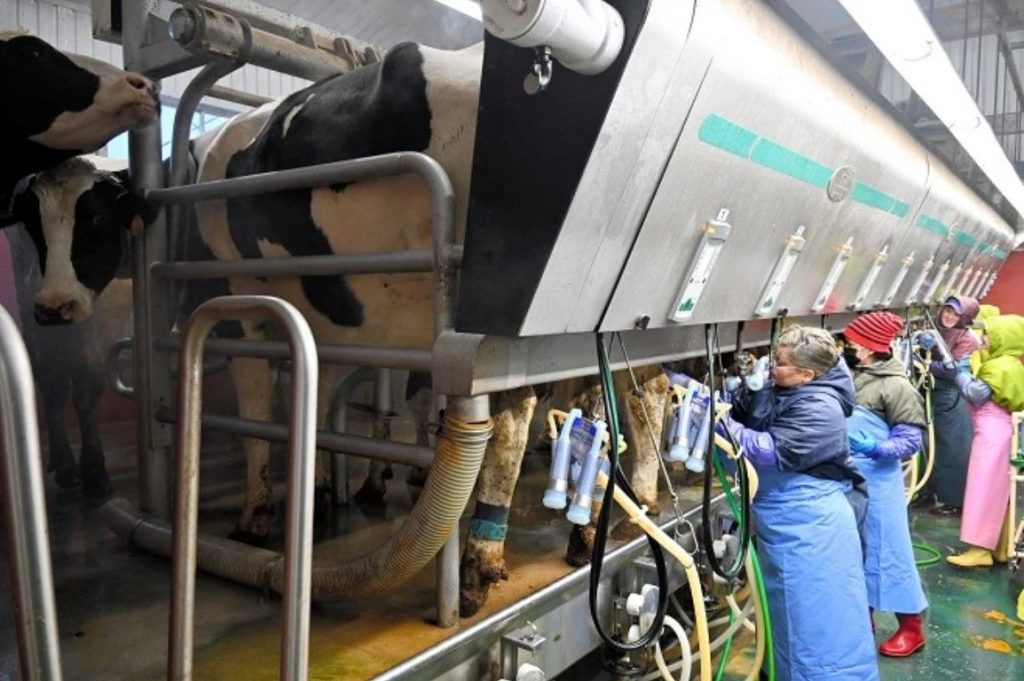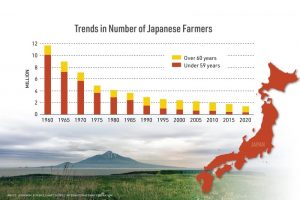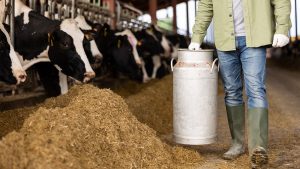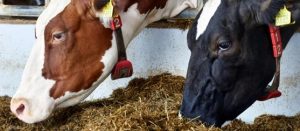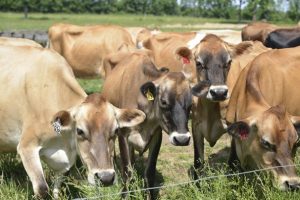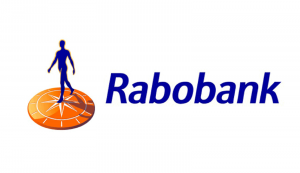
Sattva represents goodness, calmness and harmony. Rajas stands for passion, activity and movement. And tamas denotes ignorance, inertia and laziness.
Since having the sattva personality would be preferable to being overly excitable or lazy, ayurvedic practitioners recommend drinking milk, which is said to have a calming effect.
However, it must be drunk within four hours after the cow has been milked. Otherwise, it will only intensify the rajas quality in the person and cause agitation, according to the book “Cow” by Hannah Velten.
Her suggestion on drinking it while fresh probably makes perfect sense, as milk does tend to spoil quickly.
Even though life without a refrigerator is unthinkable today, the difficulty of handling milk remains unchanged.
Declining demand from food service operators due to the coronavirus pandemic was causing a milk glut, which was further aggravated when schools entered the end-of-year period and New Year’s holiday break. No school meant zero milk demand for school meals.
Panicked dairy industry lobby groups issued an SOS, pleading with consumers to help avoid discarding the surplus milk by drinking it more than usual or using it more extensively in cooking.
The public’s reaction was positive.
The business section of The Asahi Shimbun reported on Jan. 6 that Lawson Corp., a major convenience store chain franchise, sold hot milk at half the regular price and rang up substantial sales.
And milk seems to be selling briskly at supermarkets, too. If I am not mistaken, I think the dairy section shelves looked a bit barer than usual the other day.
So far, mass waste appears to have been averted.
Be it cabbage or any other item, I am saddened by any news of surplus farm produce being trashed.
It is the role of the market to distribute goods as needed, but there are limits. It would be good if food waste could be reduced by resorting to a public appeal, as in the recent case with milk.
I’ve heard before that warm milk helps when you are tense and having trouble falling asleep, such as when preparing for school entrance exams.
And it must be milk, not warm sake.
